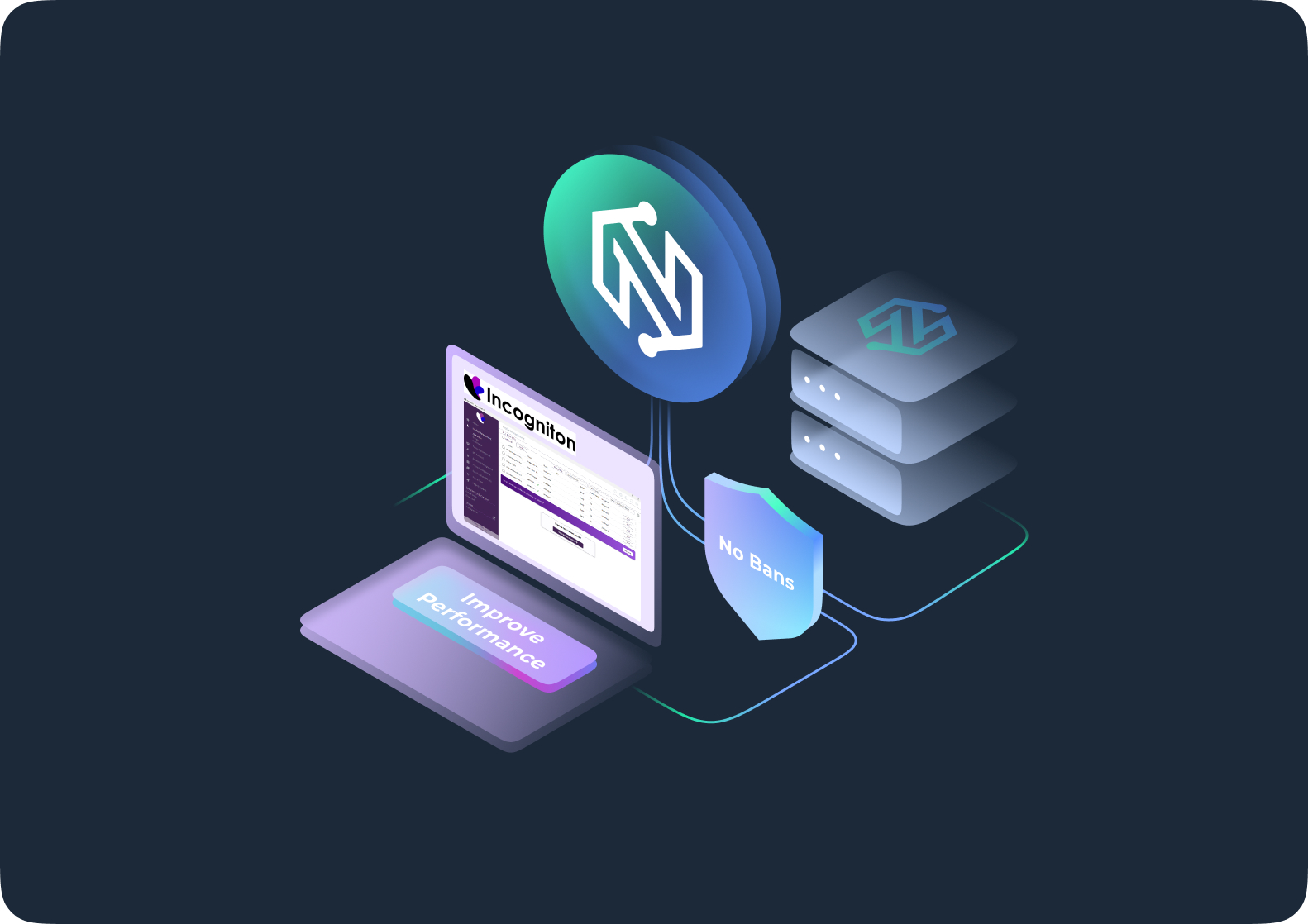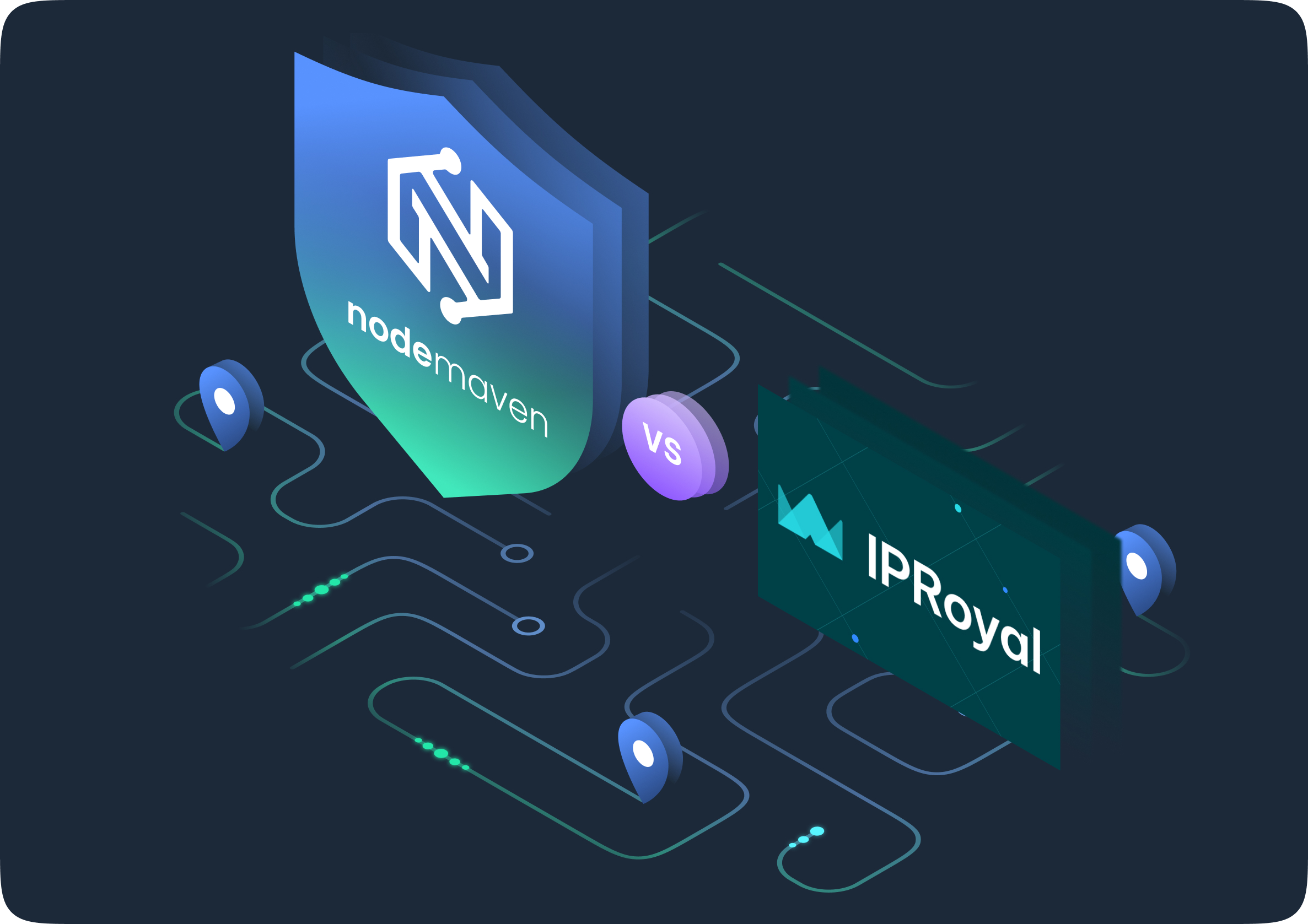Web scraping has become an essential tool for businesses and individuals looking to collect large amounts of data from the internet.
Fun fact: Companies adopting AI-powered scraping tools have reported time savings between 30-40% compared to traditional methods, with data extraction accuracy reaching up to 99.5% in complex scenarios.
However, as websites develop more sophisticated anti-scraping technologies, scrapers must adapt their methods to avoid detection and maintain efficiency.
One of the most effective ways to achieve this is by using random IPs. These dynamic IP addresses help you mask your identity, avoid bans, and get smooth scraping operations.
In this article, we’ll explore why random IPs are crucial for web scraping, the different methods to generate them, and how to maximize your scraping success with tools like NodeMaven.
Why Random IPs Are Essential for Web Scraping
When scraping data from websites, sending multiple requests from the same IP address can quickly raise red flags.
Websites often monitor IP activity to detect suspicious behavior, such as rapid-fire requests, excessive page visits, or repetitive patterns.
This is where random IPs come into play. By rotating your IP address, you can mimic natural user behavior, making it harder for websites to detect and block your scraping activities.
Random IPs not only help avoid IP bans but also enable you to bypass rate limits and geo-restrictions, making sure you have uninterrupted access to the data you need.
Whether you’re scraping for market research, price comparison, or SEO monitoring, using random IPs is key to maintaining efficiency and staying under the radar.
Understanding the Role of IP Rotation in Web Scraping
Before diving into the methods of generating random IPs, it’s important to understand how IP rotation works and why it’s a fundamental strategy for successful web scraping.
What Are Random IPs in Web Scraping?
Random IPs refer to dynamically changing IP addresses used during web scraping to avoid detection.
Instead of sending all requests from a single IP, scrapers rotate between multiple IP addresses, making it appear as though the requests are coming from different users around the world.
This rotation can be done manually or automatically using proxy services. This will create a steady flow of data without triggering anti-scraping mechanisms.
Why Do Websites Block Scrapers?
Websites block scrapers to protect their data, secure fair usage, and maintain server performance. Common reasons for blocking include:
- Excessive requests from a single IP
- Violation of terms of service
- Attempted data theft or unauthorized access
- Suspicious patterns like repeated page visits or identical user agents
By using random IPs, scrapers can distribute their requests across multiple addresses, reducing the likelihood of triggering these protective measures.
Methods to Generate Random IPs for Web Scraping
There are several methods to generate random IPs for web scraping, each with its own advantages and use cases.
Choosing the right method depends on your scraping needs, budget, and desired level of anonymity.
Using Proxies for Random IP Generation
Proxies are the most popular method for generating random IPs. A proxy server acts as an intermediary between your device and the target website, masking your real IP address and replacing it with another one.
There are different types of proxies you can use for IP rotation:
- Residential proxies: These are IP addresses assigned by Internet Service Providers (ISPs) to real devices. They offer high anonymity and are less likely to be flagged as suspicious.
- Rotating residential proxies: These proxies automatically switch between different residential IPs, making them ideal for large-scale scraping projects.
- Static residential proxies: Unlike rotating proxies, these maintain a consistent residential IP, which is useful for tasks that require session persistence.
- Datacenter proxies: These proxies come from data centers and are not tied to real devices. While faster and cheaper, they are more easily detected by websites.
VPNs vs. Proxies: Which Is Better for Random IPs?
While both VPNs and proxies can provide random IPs, they serve different purposes. VPNs encrypt your entire internet connection and are typically used for personal privacy and security.
However, they are slower and less flexible for web scraping. Proxies, on the other hand, are specifically designed for routing individual web requests, offering better speed and customization for scraping tasks.
For web scraping, proxies are generally the better choice due to their ability to handle large volumes of requests, support IP rotation, and provide geo-targeting options.
Free vs. Paid Tools for Generating Random IPs
Free random IP generators might seem appealing, but they come with significant risks:
- Unreliable and slow connections
- Higher likelihood of IP bans
- Potential security threats (malware, data theft)
On the other hand, paid proxy services offer:
- Quality, undetectable IPs
- Faster, more reliable connections
- Advanced features like geo-targeting and session control
Investing in a paid proxy server helps you get better performance, security, and long-term success for your scraping projects.
Best Practices for Using Random IPs in Web Scraping
Using random IPs is just one part of a successful web scraping strategy. To maximize effectiveness and avoid detection, follow these best practices:
- Rotate IPs frequently: Avoid sending too many requests from the same IP. Use rotating proxies to change IPs regularly.
- Mix user agents: Combine IP rotation with different user agents to mimic diverse devices and browsers.
- Respect rate limits: Don’t bombard websites with rapid-fire requests. Space out your scraping activities to resemble natural browsing behavior.
- Monitor for bans: Keep an eye on error messages and HTTP status codes to detect when an IP is blocked. Switch to a new IP as needed.
- Use session control: For tasks that require login sessions or consistent behavior, use static residential proxies to maintain the same IP for the duration of the session.
By following these practices, you can reduce the risk of detection and grant smooth, efficient scraping.
Simplify Web Scraping with NodeMaven’s Random IP Solutions
Managing random IPs manually can be time-consuming and complex. That’s where NodeMaven comes in.
Our residential proxy solutions are designed to simplify the process, offering premium, reliable IPs tailored to your scraping needs.
Here’s why NodeMaven is the best choice for generating random IPs:
- Rotating residential proxies: Automatically rotate between millions of residential IPs for uninterrupted, undetectable scraping.
- Static residential proxies: Maintain consistent IPs for session-based tasks like account management or purchasing.
- Advanced geo-targeting: Access data from specific regions with precise location targeting options.
- High-speed, reliable connections: Experience fast, uninterrupted scraping with our premium proxy network.
- Scalable solutions: Whether you’re a solo scraper or a large enterprise, our flexible plans cater to projects of all sizes.
- 24/7 customer support: Our team is always available to help you optimize your scraping setup and troubleshoot any issues.
Ready to take your web scraping to the next level?
Sign up with NodeMaven today and unlock the full potential of random IPs for your data collection projects!


